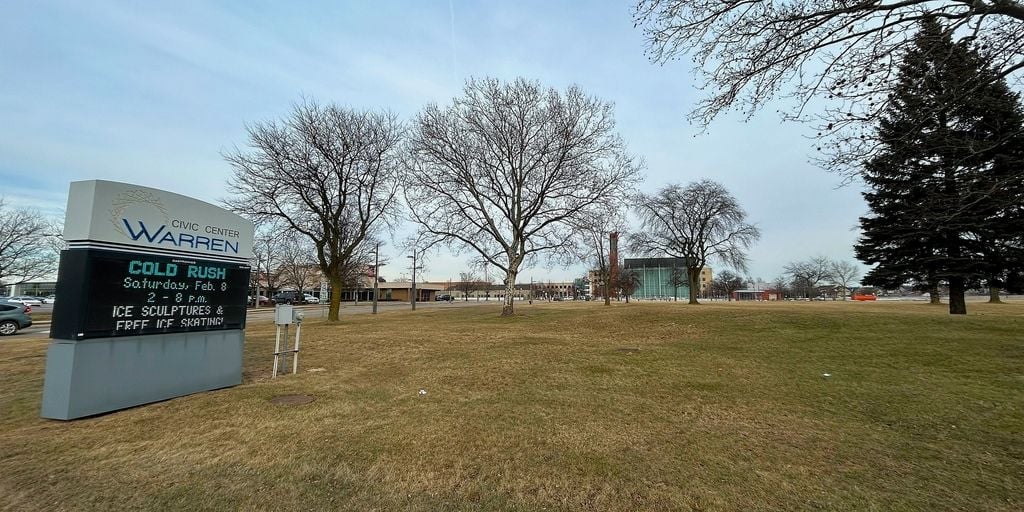
A vision to create a downtown in Warren is being resurrected after it was shelved in 2022 after division arose between local officials.
City leaders are breathing life into former plans for an expanse of 30 acres of empty land that separates a cluster of Warren’s city government buildings, court and library from commuter-congested Van Dyke Road and the General Motors Technical Center.
The Warren Town Center project initially sought to develop the property into a bustling downtown-like space with a hotel, grocery store, restaurants and community areas; but contention between the former city council, mayor and administration halted the project.
Now, city leaders are seeking out community input in an effort to put the project in gear.
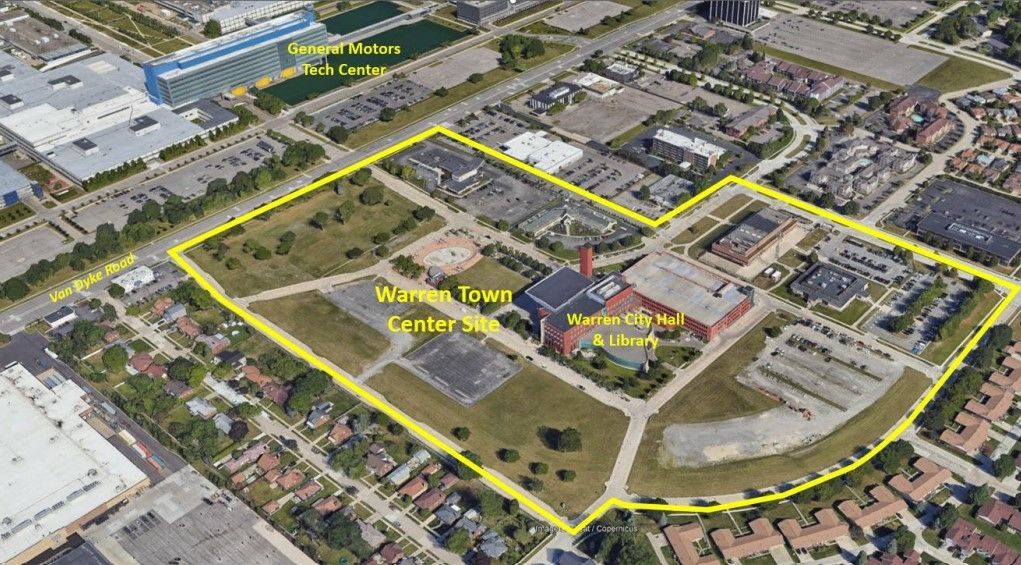
Since 1966, Warren Town Center has been discussed as a potential development. The idea was included in the city’s master plan to reinvent the area between Van Dyke Avenue, Lorraine Avenue, 13 Mile Road and 12 Mile Road into a center for civic spaces, housing, retail, hospitality and entertainment.
However, the vision was never executed, leading the community to build up its suburbs without a central space.

“I think one of the challenges that communities like Warren or Livonia — that’s entertaining a downtown — is that we weren’t necessarily built to have a city center,” Angela Rogensues, city council president and then councilperson, told Crain’s. “We were built originally by design to provide privacy and reasonable exclusion from having a downtown.
The most recent — and closest coming to fruition — version of the center was proposed in 2018 by former Warren Mayor Jim Fouts. The development of a walkable community space was initially slated for the land in front of City Hall at 1 City Square, a vacant space that Warren saw as ripe for development.
The initial design was created by Birmingham-based Gibbs Planning group and outlined the potential for a 200 or more-room hotel, 400 to 500 new residential units — including 200 units proposed by the City Square Lofts project — and 60,000 to 80,000 square feet of new retail. The City Center was expected to be a $170 million project.
In 2022, funding was close to being secured and the project seemed as if it was going to get the push it needed to take off: $140 million of the funds was slated to come from developers and $30 million from bonds. Approximately $12 million to $15 million would be offset by funds from the Michigan Economic Development Corporation’s Transformational Brownfield plans, leaving the city to fill the remaining gap.
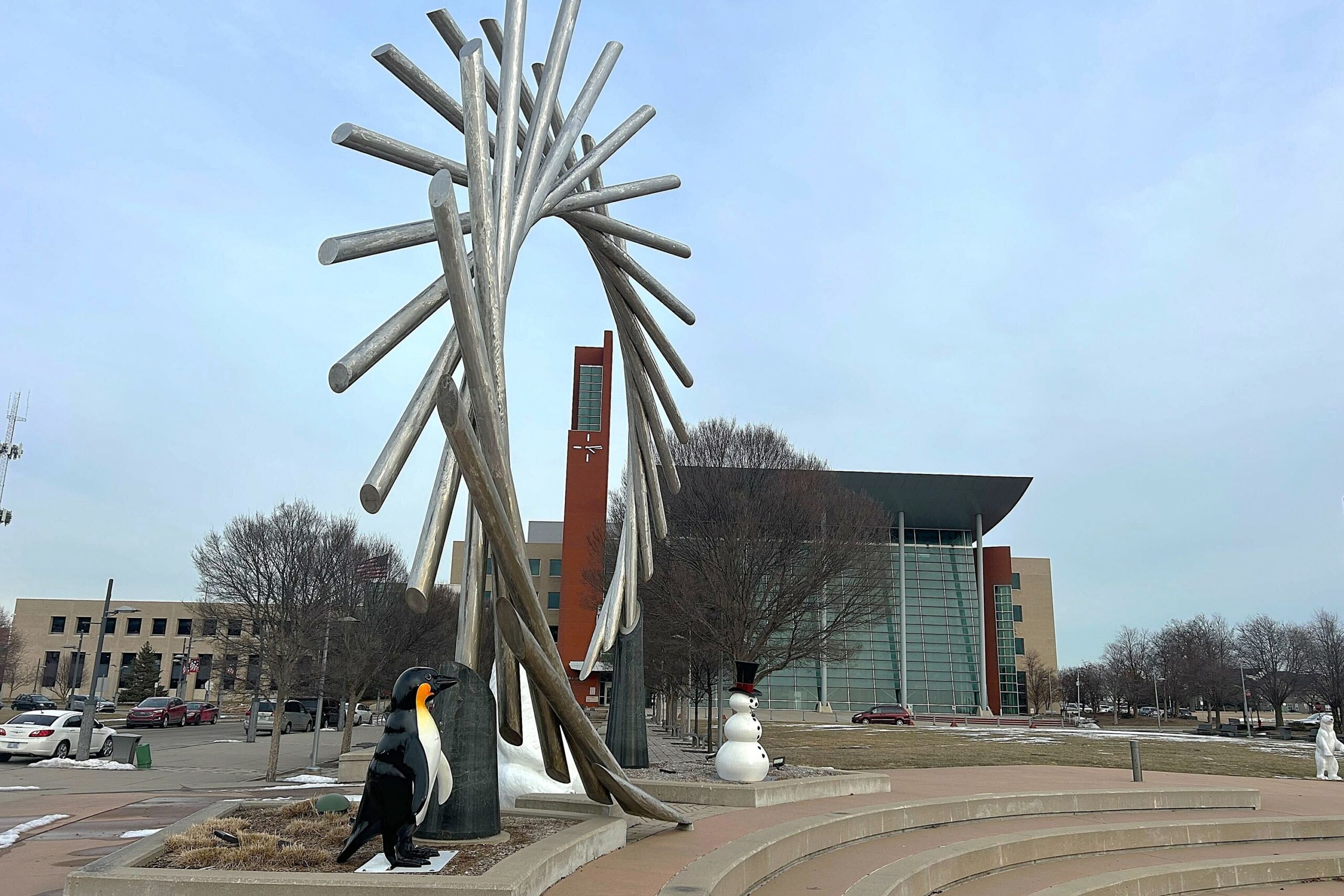
However, the city council failed to approve the $15 million investment from Warren and the plan died, Rogensues said.
“There was no willingness to rework it or come to some common ground around what it was going to look like, and folks were not supportive of the $15 million investment on the city side,” Rogensues said. “So the plot of land continues to sit empty.”
The current mayor, Lori Stone, revived conversations and community sessions with the people of Warren about the city center’s development in December 2024. What findings are gathered could form the future of the long-discussed plan.
“I don’t think we want to throw out the full (existing) plan from 2022 there’s revisions and items that need to be made to the plan,” Rogensues said. “Then there needs to be consensus, reasonable consensus, between the administration and city council that best represents the needs, wants and desires of our community, and then we have to agree to that and then chart a path forward.”
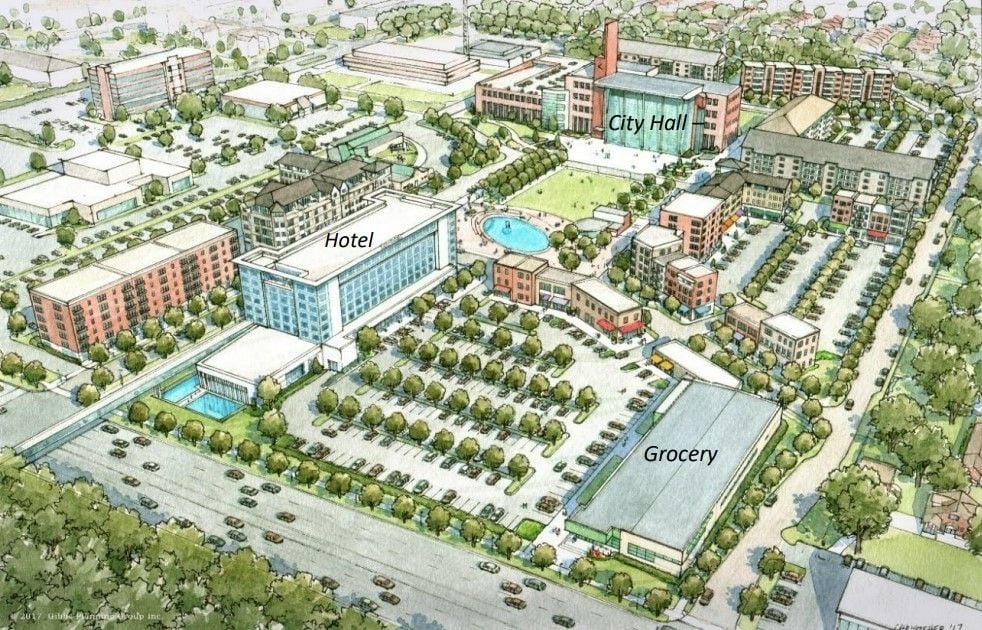
The Warren Town Center has returned to its early stages of a three-month community engagement which means much of the project details are to be determined.
However, the project is not starting from scratch.
The city is retaining Birmingham-based Gibbs Planning Group, which developed the original plan for the Warren Town Center in 2017, to work on the updated plan, said Robert Gibbs, director of the company.
The development is still slated for the 30 acres of vacant land in front of the city hall, in addition to two contiguous parcels to the northeast where the city hopes to incorporate a new courthouse, Gibbs said. As the design process progresses, the central goal of ensuring Warren’s long-term economic success by attracting and retaining families and young people remains.
In terms of infrastructure, Warren already has streets and blocks built in the area which puts the project about three to four years ahead of where a typical suburb would be in a downtown development, Gibbs said. For the design, the project has the framework of the initial proposal to pull from and modify with community input.
One element of the previous plan that faced the largest amount of criticism was the plan for a hotel.
Macomb County does not have a full-service hotel and the community had expressed that they wanted a space for weddings, banquets and other events, Gibbs said. As a result, Gibbs said he was unsure why the original hotel design was not well-received. In the current design stage, Gibbs will be showing designs with and without the hotel.
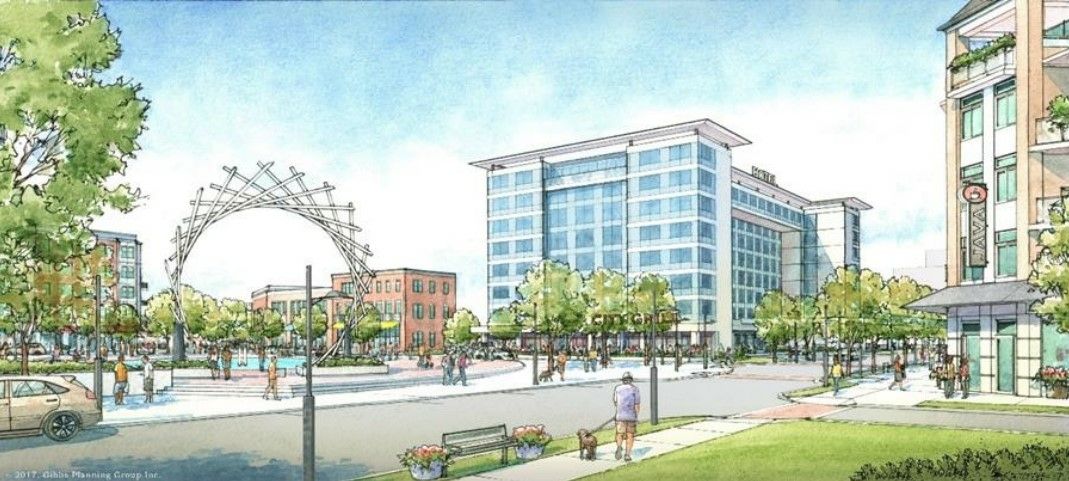
“From my point of view, I’d love to have the hotel there, because it would bring more business to the small shops and retailers and restaurants, and it would make it more of a 24-hour place. So from a planning point of view, I’d love to see a hotel there,” Gibbs said.
The newer, high-end model for the hotel was different from lodging and hospitality in the past with a rooftop pool and a banquet hall — an idea that would still be good for the community, said Joe Vicari, a prominent restaurateur and a member of the Warren Downtown Development Authority board.
“I think the hotel would have been good, and it would have been good for General Motors. It’s right across the street from (their Warren operations),” Vicari said.
Other aspects were well-received and supported, like the vision for independent businesses, especially coffee shops, businesses and grocery stores — an idea people seem to support unanimously, Gibbs said. In the original plan, high-end and specialty food markets like Papa Joe’s were floated as options and offered something different compared to other grocers like Kroger, Vicari said.
Additionally, the community has shown an interest in park space, amphitheaters and community facilities.
Housing has also been a big request including options that would appeal to people across life stages — empty nesters, senior citizens and young, first-time home renters and buyers, Gibbs said.
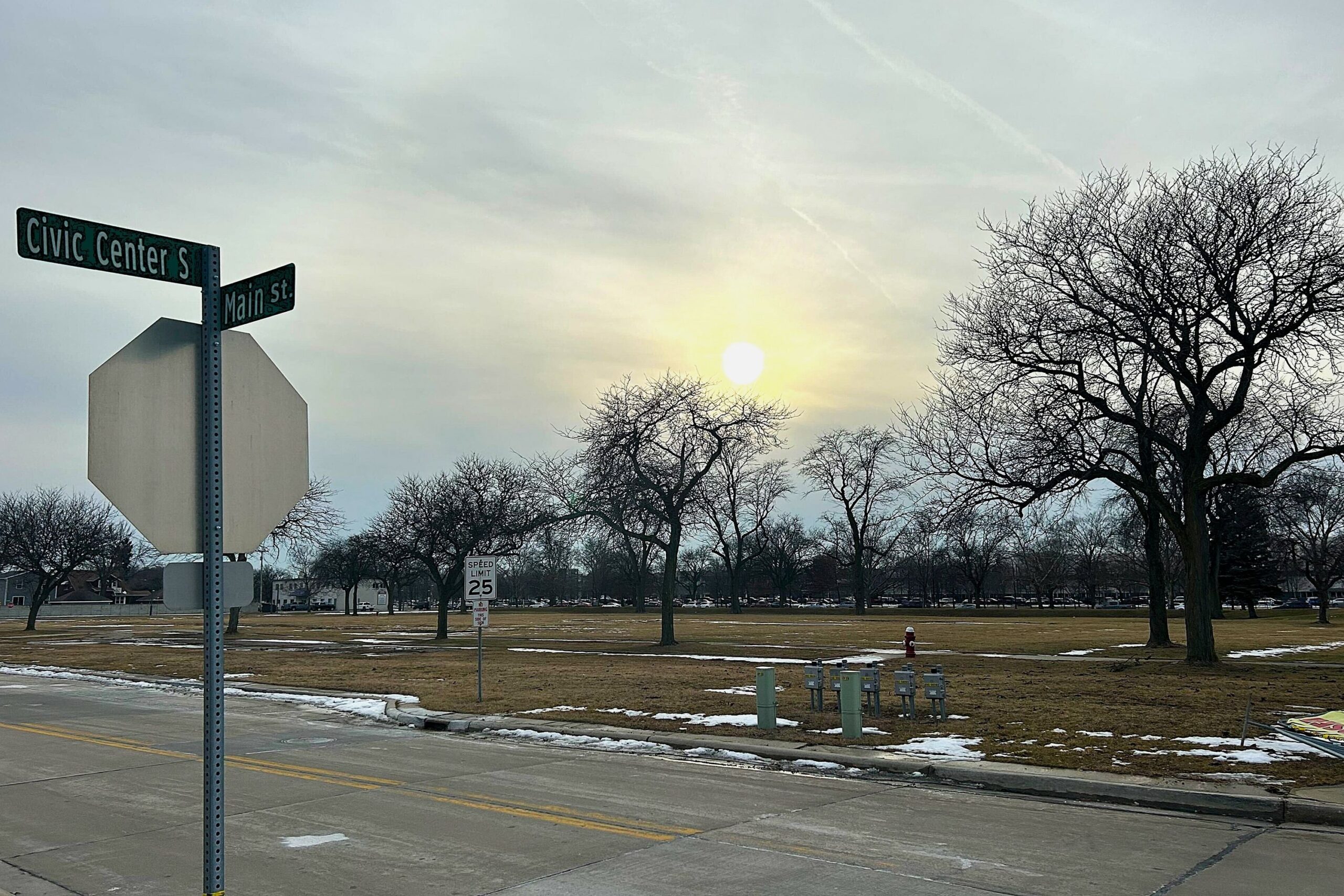
Currently the vacant plot of land costs the city money to maintain. By making the land commercial, the city would be able to bring in tax money on the property rather than spend it, Rogensues said.
“We really like independent shops and small businesses in Warren, and we also know that some of those things tend to be the most economy-proof as you think through the ups and downs of the community,” Rogensues said.
In addition to community engagement, Gibbs is working with a steering committee — a group of business owners, property owners, city council members, planning commission members and others — to test various models.
Once conversations focus the community’s vision of the downtown area, the next step would be bringing a plan to the City Council for their input and feedback. Then further discussion around funding, financing and execution will happen, Rogensues said.
The costs of the project — and if they would be comparable to the $170 million iteration — are still too early to be determined.
However, Rogensues said the “general sentiment” is to create a downtown that doesn’t cost taxpayer money, and if there is taxpayer investment there will be accessible public spaces.
“(Funding) could range all the way from selling land at straight retail prices to some sort of public-private partnership,” Gibbs said. “We just haven’t gotten far enough in the plan. We’re still doing the alternatives; putting a number on it.”
Typically RFPs are issues for projects relating to the city, but what the specific bids would be are yet to be determined, Rogensues said.
Although the project hasn’t been focused on or discussed by the DDA in a couple of years, Vicari said he sees the potential for the town center to become a nice area for the community and its potential to become a walkable downtown area for dining and shopping.
Even though a centralized downtown has been at the center of discussion since the development’s inception, the project could take a new “disparate downtown” form, Rogensues said. This iteration would be decentralizing a consolidated downtown and instead have different neighbors have their own pockets of city structure and economic development, she said.
“A more disparate strategy, or a strategy that is spread out, I think uplifts various parts of the community,” Rogensues said. “I think from a planning perspective you have to be thinking about the city a little bit differently in how you think about economic development.”
Owning a home is a keystone of wealth… both financial affluence and emotional security.
Suze Orman